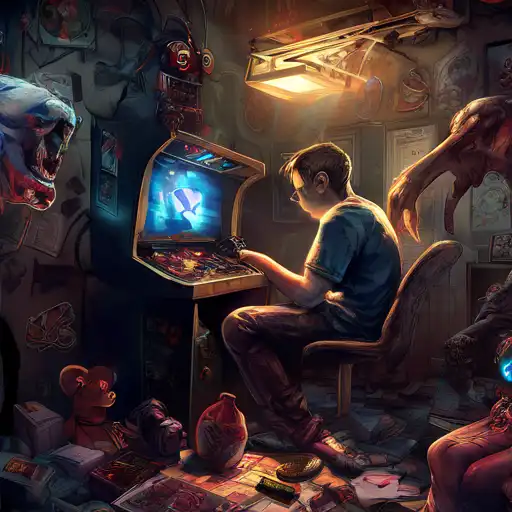Introduction to Gaming Addiction
Gaming addiction has become a significant concern in today's digital age, affecting individuals across various age groups. This article delves into the psychological underpinnings of gaming addiction, shedding light on why some individuals are more susceptible than others.
The Role of Dopamine in Gaming Addiction
At the heart of gaming addiction lies the brain's reward system, primarily driven by dopamine. This neurotransmitter plays a pivotal role in how we experience pleasure and reward, making certain games incredibly addictive.
How Games Trigger Dopamine Release
Games are designed to provide instant gratification through rewards, achievements, and level advancements, all of which stimulate dopamine release. This constant cycle of reward and pursuit can lead to addictive behaviors.
Psychological Profiles Prone to Addiction
Not everyone who plays video games becomes addicted. Certain psychological traits, such as impulsivity, social anxiety, and a need for escapism, can increase the risk of developing an addiction.
The Escape Theory
For many, gaming offers an escape from reality, providing a temporary relief from stress, anxiety, or depression. This escapism can become a crutch, leading to excessive gaming and, ultimately, addiction.
Social and Environmental Factors
Beyond individual psychology, social and environmental factors play a crucial role in gaming addiction. Lack of social support, peer pressure, and accessibility to games can all contribute to the development of addictive behaviors.
The Impact of Online Communities
Online gaming communities can foster a sense of belonging and achievement, further reinforcing addictive behaviors. The social aspect of gaming can make it even more difficult for individuals to step away.
Strategies for Managing Gaming Addiction
Understanding the psychological triggers of gaming addiction is the first step toward managing it. Here are some strategies that can help:
- Setting strict time limits for gaming
- Seeking alternative forms of entertainment and social interaction
- Professional counseling or therapy for underlying psychological issues
Conclusion
Gaming addiction is a complex issue rooted in psychology, influenced by both internal and external factors. By recognizing the signs and understanding the underlying causes, individuals and their loved ones can take proactive steps toward recovery. For more insights into mental health and addiction, explore our mental health resources.
